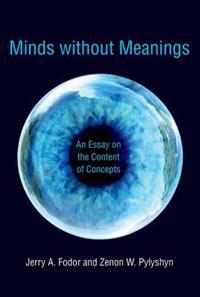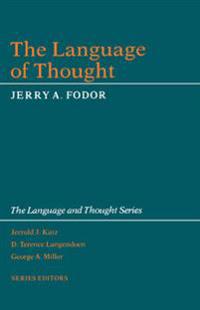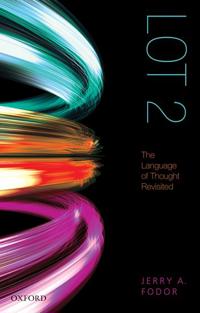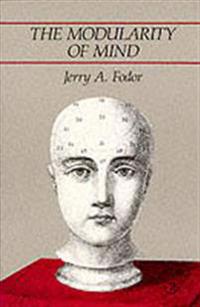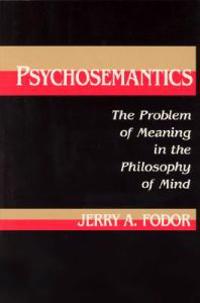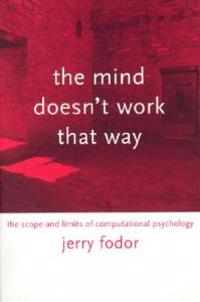Minds without Meanings (Inbunden)
avJerry A. Fodor, Zenon W. Pylyshyn, Jerry A. Fodor
ISBN: 9780262027908 - UTGIVEN: 2014-12In cognitive science, conceptual content is frequently understood as the "meaning" of a mental representation. This position raises largely empirical questions about what concepts are, what form they take in mental processes, and how they connect to the world they are about. In Minds without Meaning[...]
The Language of Thought (Häftad)
avJerry A. Fodor, George A. Miller, D. Terence Langendoen
ISBN: 9780674510302 - UTGIVEN: 1980-01Concepts (Häftad)
avJerry A. Fodor
ISBN: 9780198236368 - UTGIVEN: 199802The General Editors are: Martin Davies, Wilde Reader in Mental Philosophy, University of Oxford, UK; James Higginbotham, Professor of General Linguistics, University of Oxford, UK; John O'Keefe, Professor of Cognitive Neuroscience, University College, London, UK; Christopher Peacocke, Waynflete Prof[...]
Lot 2 (Häftad)
avJerry A. Fodor
ISBN: 9780199588015 - UTGIVEN: 201007Jerry Fodor presents a new development of his famous Language of Thought hypothesis, which has since the 1970s been at the centre of interdisciplinary debate about how the mind works. Fodor defends and extends the groundbreaking idea that thinking is couched in a symbolic system realized in the brai[...]
The Modularity of Mind (Häftad)
avJerry A. Fodor
ISBN: 9780262560252 - UTGIVEN: 198301This study synthesizes current information from the various fields of cognitive science in support of a new and exciting theory of mind.[...]
RePresentations: Philosophical Essays on the Foundations of Cognitive Science (Pocket)
avJerry A. Fodor
ISBN: 9780262560276 - UTGIVEN: 1983-03-29Psychosemantics (Häftad)
avJerry A. Fodor
ISBN: 9780262560528 - UTGIVEN: 1989-01Psychosemantics explores the relation between commonsense psychological theories and problems that are central to semantics and the philosophy of language. Building on and extending Fodor's earlier work it puts folk psychology on firm theoretical ground and rebuts externalist, holist, and naturalist[...]
Elm and the Expert, The: Mentalese and Its Semantics (Övrig)
avJerry A. Fodor
ISBN: 9780262560931 - UTGIVEN: 1995-10-03Bound to be widely read and much discussed, The Elm and the Expert, written in Jerry Fodor's usual highly readable, irreverent style, provides a lively discussion of semantic issues about mental representation, with special attention to issues raised by Frege's problem, Twin cases, and the putative [...]
In Critical Condition: Polemical Essays on Cognitive Science and the Philosophy of Mind (Övrig)
avJerry A. Fodor
ISBN: 9780262561280 - UTGIVEN: 2000-03-01In this book Jerry Fodor contrasts his views about the mind with those of a number of well-known philosophers and cognitive scientists, including John McDowell, Christopher Peacocke, Paul Churchland, Daniel Dennett, Paul Smolensky, and Richard Dawkins. Several of these essays are published here for [...]
The Mind Doesn't Work That Way (Häftad)
avJerry A. Fodor
ISBN: 9780262561464 - UTGIVEN: 200110The computational theory of the mind is challenged in this book on cognitive science and its conception of how the mind works. Arguing that cognitive scientists have only just started to understand mental processing, this book explores the relationship between different theories.[...]

